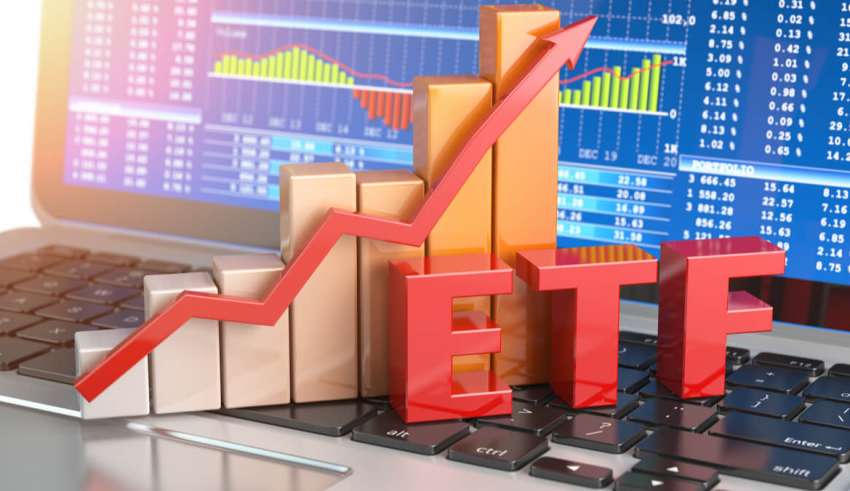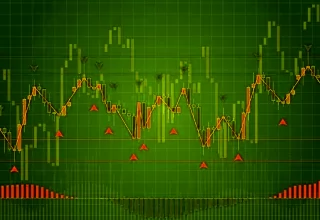
Investing in Exchange-Traded Funds (ETFs) has become increasingly popular over the last few years. ETFs are an investment vehicle that gives investors access to a wide range of assets, including stocks and bonds, in one package. Despite their growing popularity, there are several things you should know before investing in ETFs.
First, it is essential to understand the basics of how ETFs work. An ETF consists of a basket of securities, typically stocks or bonds, that track an underlying index. Unlike mutual funds, which professionals actively manage, ETFs are passive investments that track the index they were designed to follow. As such, they are cheaper than other types of mutual funds.
Before investing in ETFs, you should also know their potential risks. ETFs generally have lower management fees than other funds but can still carry higher risk levels due to their passive nature. Additionally, while ETFs are designed to track a specific index and provide investors with instant diversification across multiple asset classes, they may only sometimes do so accurately or entirely because of tracking errors.
Additionally, it is essential to understand the tax implications associated with ETF investing. Most ETFs are taxed as capital gains if held for more than one year, so you should know your current tax situation before investing in an ETF. Furthermore, some countries may levy taxes on dividends paid by certain ETFs, so it is essential to research any additional tax liabilities they may incur.
Finally, consider the cost of ETFs before investing. While ETFs tend to be cheaper than other funds, their fees can still increase over time and reduce your returns. Additionally, some brokers charge additional fees for trading ETFs, such as commissions or bid/ask spreads. It is essential to compare brokerage firms to find the best combination of low costs and reliable services.
What are the benefits of investing in ETFs in Singapore?
One of the benefits of investing in the Exchange Traded Funds market in Singapore is its cost-effectiveness. Compared to other types of mutual funds, ETFs generally have lower management fees and can be more affordable for investors. Additionally, since they are typically passively managed and track an underlying index, ETFs provide instant diversification across multiple asset classes with minimal effort from the investor.
Another benefit of investing in ETFs in Singapore is that most are taxed as capital gains if held for more than one year, which may result in a lower tax liability than other investments. Moreover, some countries may levy taxes on dividends paid by certain ETFs, so it’s essential to research any additional tax liabilities before deciding.
Furthermore, many brokers offer low trading costs when dealing with ETFs, such as commissions or bid/ask spreads, which means that investors can buy and sell without incurring high transaction costs, which can significantly reduce overall expenses over time.
Finally, investors should also consider the liquidity associated with investing in ETFs when making their decisions; due to their passive nature and tracking errors, there is always a risk that investment could become illiquid quickly, so it’s essential to assess this risk beforehand.
What are the risks associated with investing in ETFs in Singapore?
Investing in ETFs in Singapore can present several risks, which may vary depending on the type of ETF invested in and the underlying asset. For example, potential liquidity risks are associated with investing in illiquid ETFs or those with low trading volumes. Furthermore, investors should know that some countries may levy taxes on dividends paid by certain ETFs.
Additionally, investors should be aware of track record errors caused by differences between the index an ETF is designed to follow and its actual performance. Finally, it is essential to compare brokerage firms before investing, as they may charge additional fees for trading ETFs, such as commissions or bid/ask spreads which could affect the overall return from the investment. Investors considering ETFs in Singapore should research the risks and fees associated with ETF investing before committing funds.
The bottom line
Ultimately, while exchange-traded funds offer investors a convenient way to access multiple asset classes at once and generally come with lower management fees than other funds, there are several things you should know before investing in them. Before committing any of your capital, understand how ETFs work, their associated risks, and the associated tax implications and cost. Proper research and comparing different options can help ensure your ETF investments succeed.

























